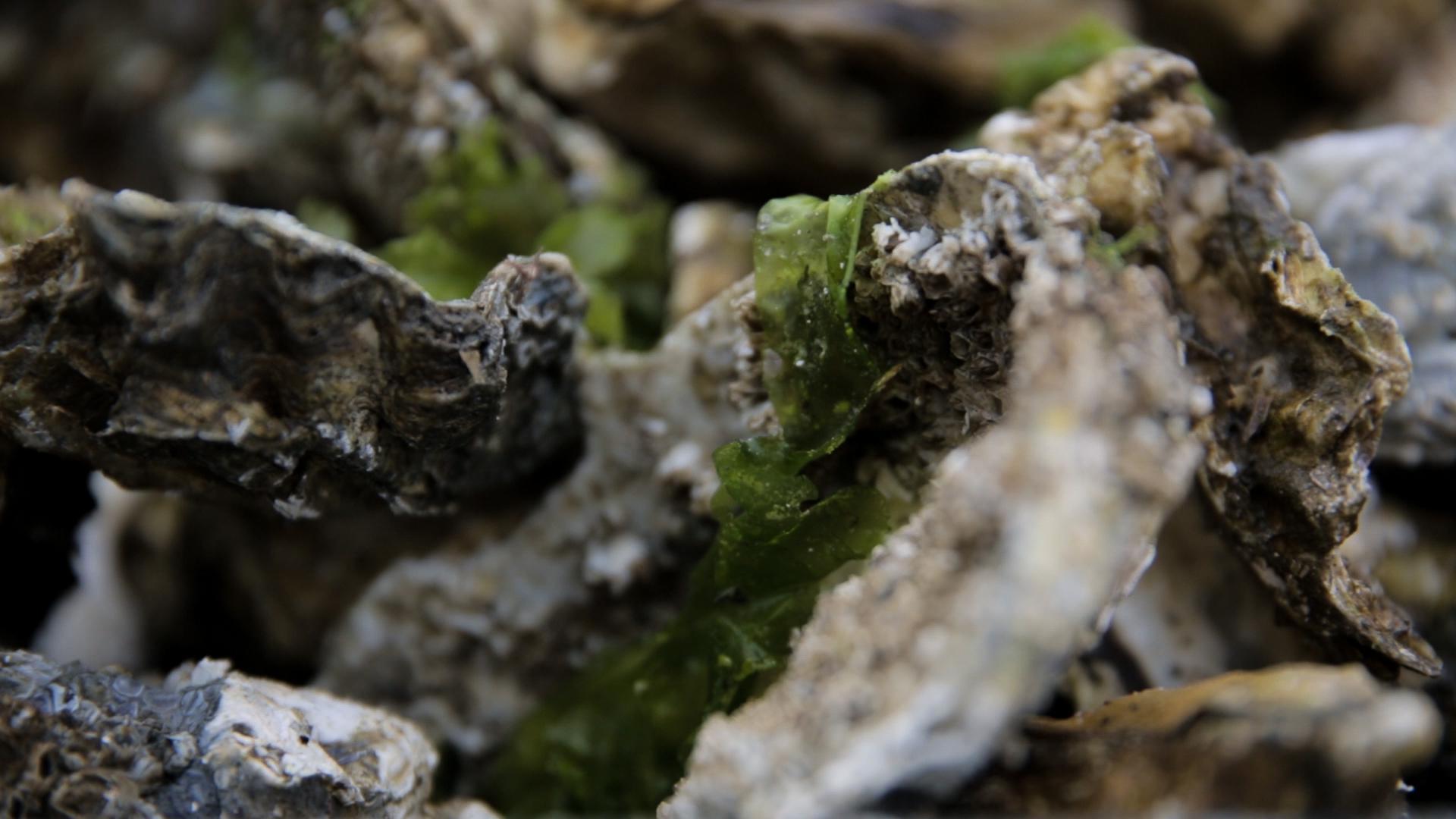
The coast around Washington's Willapa Bay supplies one-fourth of the nation's oysters.
Kaylee Domzalski / OPB
Mud worms are parasites that live in oyster shells. They bore into the shell and make a home there, which gets filled with mud and excrement from the tiny worms. While they are not harmful to humans, mud worms can make oysters less appealing and also affect the shellfish’s ability to grow. These effects are a problem for the industry.
While mud worms have been found in oysters in California and Oregon, for a long time, Washington aquaculture farms were spared. That changed a few years ago. But the mud worms affecting oysters off of Washington’s coast are a different species than scientists have ever seen before.
Researchers at the University of Washington School of Aquatic and Fishery Sciences are trying to find out whether the new species is invasive, or an ancient native species that has lain dormant for centuries. Julieta Martinelli is a postdoctoral researcher at the University of Washington. She joins us to share her efforts to solve the mud worm mystery.
Contact “Think Out Loud®”
If you’d like to comment on any of the topics in this show, or suggest a topic of your own, please get in touch with us on Facebook or Twitter, send an email to thinkoutloud@opb.org, or you can leave a voicemail for us at 503-293-1983. The call-in phone number during the noon hour is 888-665-5865.
